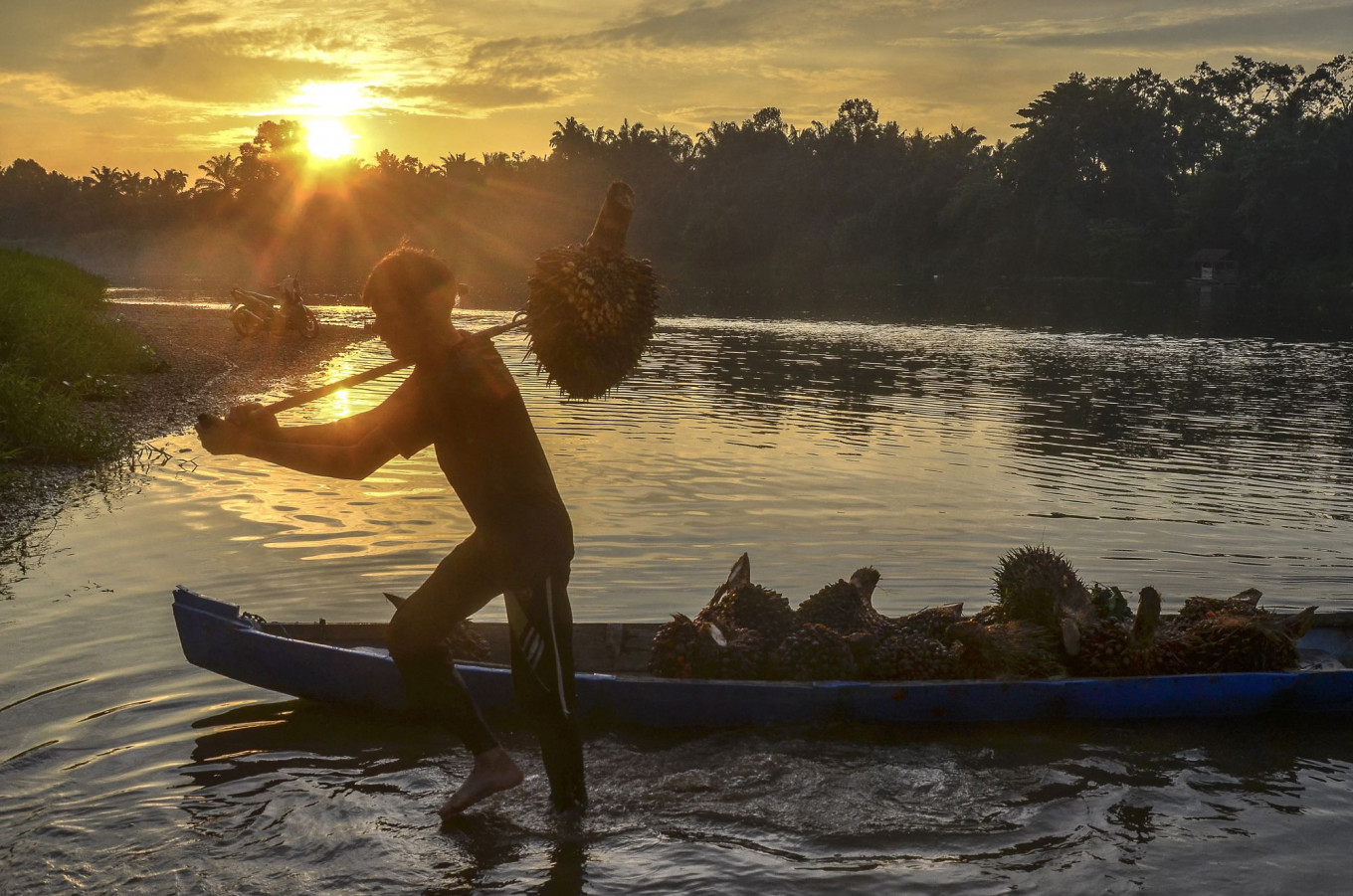Popular Reads
Top Results
Can't find what you're looking for?
View all search resultsPopular Reads
Top Results
Can't find what you're looking for?
View all search resultsIEU-CEPA will not hinder Indonesia from deforestation regulation
The agreement is not an end point but a starting point for Indonesia to navigate the EU’s deforestation regulation more strategically.
Change text size
Gift Premium Articles
to Anyone
T
he political agreement of the Indonesia-European Union Comprehensive Economic Partnership (IEU-CEPA) signed by President Prabowo Subianto and European Commission President Ursula von der Leyen offers a rare moment of optimism, easing long-standing trade tensions between Indonesia and the European Union, mediated through the World Trade Organization.
Although the two sides aim to conclude negotiations by September, securing tariff-free access for goods moving in both directions, the EU’s deforestation regulation (EUDR) will remain firmly in place.
However, the deforestation regulation, despite ongoing diplomatic pushback from Jakarta, stands apart from the CEPA framework. Brussels treats it as standalone domestic policy under the European Green Deal, classifying it as a non-trade barrier. In this context, CEPA enhances mutual trade liberalization through tariff elimination, yet it has no political authority to override domestic regulations.
The terms of the IEU-CEPA regulating agricultural products under sanitary and phytosanitary measures seek to align the country’s food and agricultural standards more closely with EU rules to some extent, sectors which Indonesia exports heavily. In this regard, commodities falling under the EU’s deforestation regulation such as cattle, palm oil, soy, cocoa, coffee, rubber and wood must continue to comply with EU sustainability and traceability standards regardless of the tariff concessions.
Despite that compliance, however, a window for negotiation remains open as the 27-country bloc in its latest country benchmarking list classified Indonesia as “standard-risk”, alongside other major deforestation-linked producers such as Malaysia, Brazil and Ivory Coast. On the one hand, due diligence will entail higher costs and longer processing times, causing concern to traders, but on the other, this classification may lower political tensions and make the case that Indonesia merits a low-risk classification.
Prior to the CEPA taking effect, Indonesia continued to benefit from the EU’s Generalized Scheme of Preferences (GSP) regulation under which tariffs are significantly lower than those applied to countries falling under Most-Favored Nation (MFN) status. Indonesian crude palm oil enters the EU market duty-free whereas refined palm oil is subject to a reduced tariff of 4.5 percent compared to MFN rates ranging from 5 percent to 12.8 percent.
In fact, the EU imported 2.8 million tonnes of palm oil, shipped between July 2024 and March 2025, out of which 34.25 percent was imported by the Netherlands. In this regard, Indonesia supplied 870,000 tonnes to the EU as of late June, accounting for approximately 25 percent of the bloc’s total palm oil imports.



















